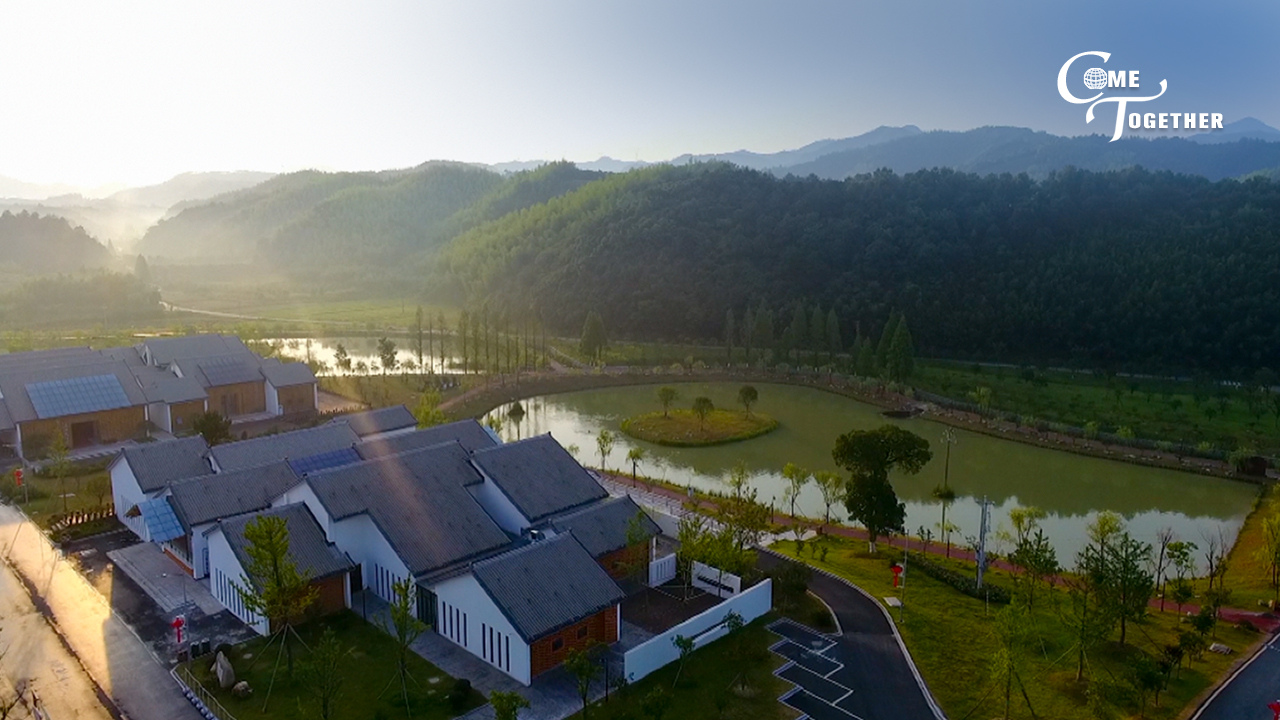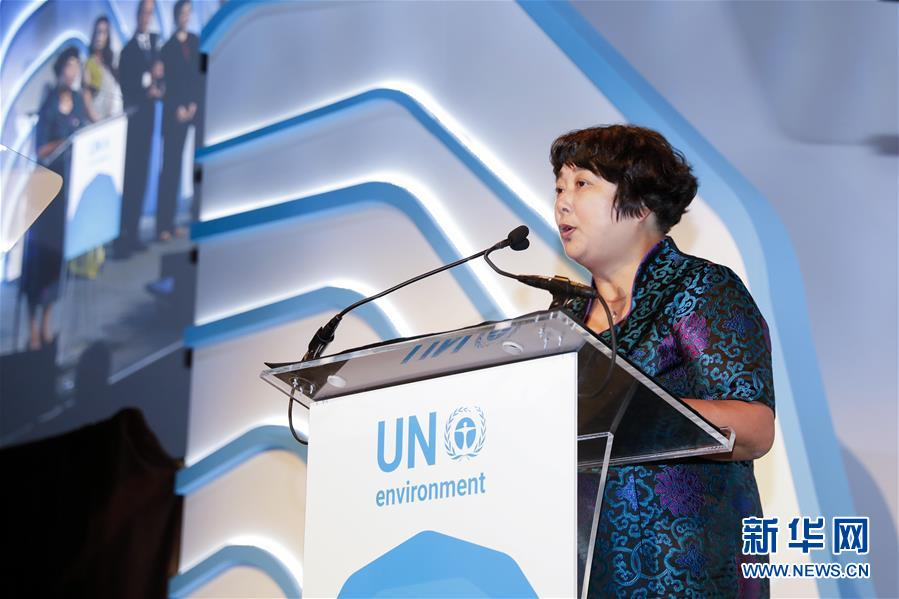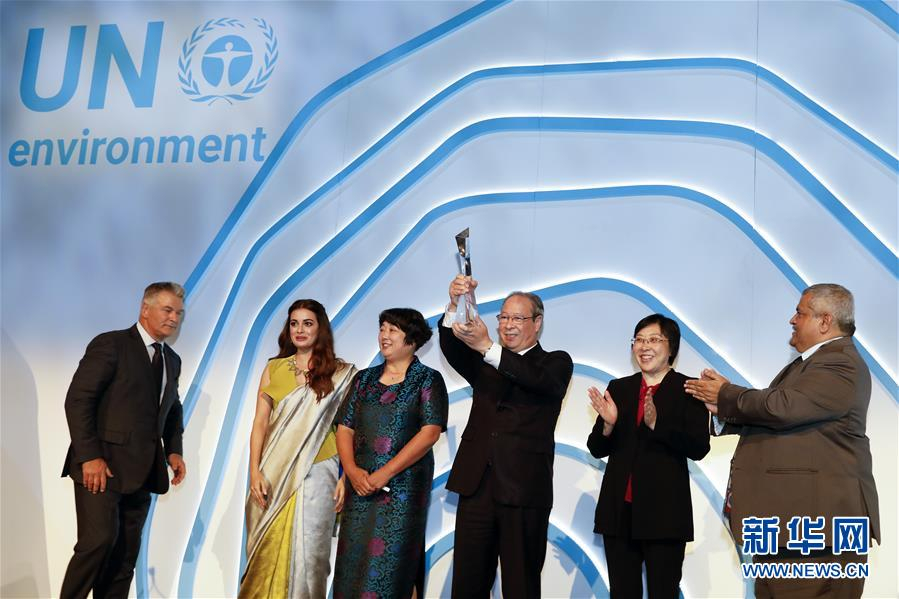
Environment
10:40, 22-Apr-2019
Earth Day: The story of rural transformation
By Chen Ran
03:51

The memory of her first award ceremony at the United Nations headquarters in New York last year remains fresh for Qiu Liqin.
The 54-year-old farmer from east China's Zhejiang Province earned the 2018 Champions of the Earth Award (inspiration and action), the highest environmental award by the United Nations Environment Program (UNEP), on behalf of the 57 million Zhejiang people for their outstanding and impressive "Green Rural Revival Program."

Qiu Liqin addresses at the UN headquarters in New York, September 26, 2018. /Xinhua Photo
Qiu Liqin addresses at the UN headquarters in New York, September 26, 2018. /Xinhua Photo
"I've lived here since I got married. My first impression was that everything was dirty and messy," Qiu recalled. "The river was littered with waste."
2003 was the turning point for the village. Under the leadership of Xi Jinping, the then Party secretary of Zhejiang, the Green Rural Revival Program was launched throughout the province in June of that year, with ecological development at its core. It aimed to incorporate water management, waste management and recycling to transform the province.
Qiu took up her job as the director of Lujiacun Village
in 2011, where she made a resolution to totally transform the village. Qiu made
household waste management the top of the agenda.
Villagers have blue bins for household waste and
green bins for kitchen waste. They can earn points by dumping the waste
accordingly and exchange them for daily essentials, and the waste collected
will be recycled as fertilizers.
Apart from household waste management, Qiu also pushed forward the sanitation of household toilets.
The foul waste from the toilet will flow into a three-chamber septic tank via drainage pipes and it will then go through a triple sedimentation process. Once treated, the sewage in the last chamber can be used for watering the vegetables. The rest of the sewage, on the other hand, will then become reclaimed water which can safely be disposed into river.
By 2013, the mission to clear up the village had completely restored the local ecosystem.
In fact, Lujiacun Village is just one of the
thousands of villages included in the Green Rural Revival Program. By 2017,
27,000 villages finished their initial revival program, making up 97 percent of
villages in Zhejiang Province.
The Green Rural Revival Program has not only renovated thousands of villages in Zhejiang but also greatly increased villagers' incomes. These benefits manifest the claim that "Clear waters and lush mountains are golden assets."

Representatives from east China's Zhejiang Province obtain the 2018 Champions of the Earth Award for their "Green Rural Revival Program," September 26, 2018. /Xinhua Photo
Representatives from east China's Zhejiang Province obtain the 2018 Champions of the Earth Award for their "Green Rural Revival Program," September 26, 2018. /Xinhua Photo
According to the UNEP, "this exceptionally successful eco-restoration program shows the transformative power of economic and environmental development together."
The sustainable, harmonious development between man and nature is the rationale behind the Green Rural Revival Program, which resonates with the 2030 Agenda for Sustainable Development that has been adopted by the UN.
Changing the world today for a better tomorrow is not only a beautiful vision, but also a shared resolution and responsibility of the human race. Shoulder to shoulder, hand in hand, let's work together and forge ahead towards our goal.

SITEMAP
Copyright © 2018 CGTN. Beijing ICP prepared NO.16065310-3
Copyright © 2018 CGTN. Beijing ICP prepared NO.16065310-3